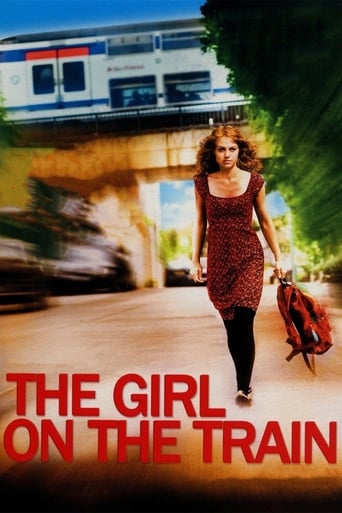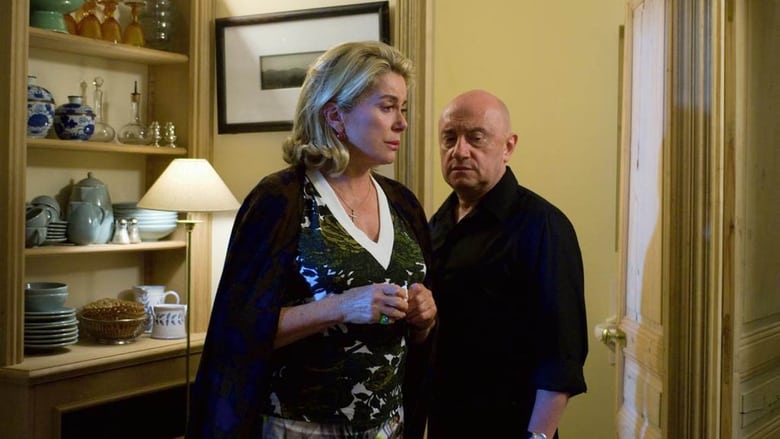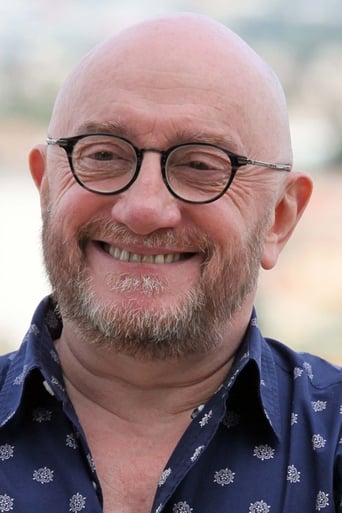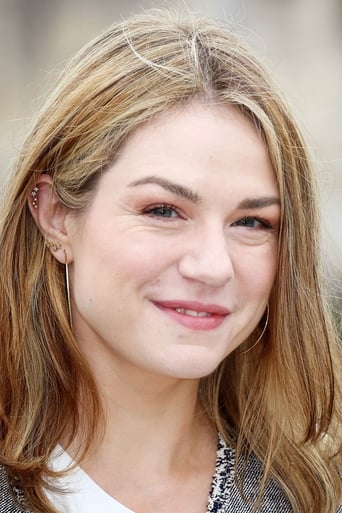

The Girl on the Train (2009)
The Girl on the Train is a 2009 French drama film directed by André Téchiné. Jeanne is a young woman, striking but otherwise without qualities. Her mother tries to get her a job in the office of a lawyer, Bleistein, her lover years ago. Jeanne fails the interview but falls into a relationship with Franck, a wrestler whose dreams and claims of being in a legitimate business partnership Jeanne is only too happy to believe. When Franck is arrested, he turns on Jeanne for her naivety; she's stung and seeks attention by making up a story of an attack on a train. Is there any way out for her?
Watch Trailer
Cast


Reviews
André Téchiné's 'The Girl on the Train' (La fille du RER) focuses on a naive girl Jeanne (Émilie Dequenne) who fabricates a story about being attacked on a suburban Paris train by black and Arab youths who supposedly mistook her for a Jew. The story is based on a real event that took place in France in 2004, adapted for the stage by Jean-Marie Besset as 'RER', and written for the screen by Besset, Odile Barski, and director Téchiné. Téchiné, stating that 'the story became the mirror of all French fears, a revelation of what we call the 'collective unconscious.' How an individual's lie is transformed into truth with respect to the community at large and its fears', 'The Girl on the Train' dissects the psychological circumstances and consequences surrounding a bold lie in a rich drama, concentrating on the permutations such an act has one all concerned. Jeanne lives with her single mother Louise (Catherine Deneuve) who manages the family finances as a childcare provider. Jeanne spends the greater part of her time roller skating and it is on one of her excursions that she meets the rather mysterious Franck (Nicolas Duvauchelle), a young wrestler who immediately attempts to win Jeanne's attention and affection despite Jeanne's insecurities. They eventually respond to the mutual chemistry and Franck searches for a way to help Jeanne out of financial difficulties: they become caretakers in a warehouse home, which is unbeknownst to Jeanne, a drug trafficking site. An incident occurs when a 'buyer' shows up and Franck is stabbed in defending his caretaker job and Jeanne's future. Jeanne is distraught but when she visits Franck in the hospital, Franck blames Jeanne for his bad luck and rebuffs her - he must now serve prison time for his involvement in the drug game. Now, torn between her loss of money, her new 'home', and the love of Franck, Jeanne plans a manner of striking back: she slices her skin, clips her hair, and paints swastikas on her abdomen and reports that she has been attacked by anti-Semites. Louise seeks the assistance of an old flame who is now the important Jewish lawyer Samuel Bleistein (Michel Blanc) - man with whom Jeanne had unsuccessfully interviewed for a job - and what Louise thought would be a protection for both Franck and Jeanne results in Jeanne's confession that she fabricated the entire incident, a factor that disrupts the lives of all those affected by the lie, especially the family of Bleistein already teetering on disintegration due to the rocky marriage of his son and daughter-in-law and the preparation for the grandson's contested Bar Mitzvah. Téchiné knows how to take seemingly ordinary people and circumstances and show the profound effect of evil wherever it raises its head. The film is enhanced by the verismo photography by Julien Hirsch and the apropos musical score by Philippe Sarde. While this film is not quite up to the standards of Téchiné's films such as 'Wild reeds', 'My Favorite Season', 'Changing Times' or 'Strayed', it still maintains that realistic surface beneath which lies the real grit of life. In French with English subtitles. Grady Harp
This movie consists of scenes of a girl Rollerblading, occasionally interrupted by a failed attempt at storyline and character study. Before, or better if, you read any further: Don't Waste Your Time.This movie was 102 Minutes, but honestly felt double that length. The whole thing stunk, but here come the specific aspects of reek. We are never given any motivation for the "true event" culmination this movie is based around. There are peripheral stories and characters that are useless to plot development and uninteresting. It's slow, it goes nowhere and if I hadn't been watching it with other people I would have shut it off about 3/4s of the way through. I think there is still a contingent of American people out there that believe foreign equals complex and innovative. Watch this Rollerblading commercial called a movie and you'll realize that merde is merde in any language. (Look it up).
In this story set in Paris, we get to know two very different families and see them eventually connect. The first is that of Jeanne, a rather aimless and unmotivated young woman who lives with her mother (Catherine Deneuve) and spends her time roller blading. The second is that of successful lawyer Nathan who is about to celebrate his grandson's bar mitzvah. When Jeanne becomes involved with a low-life creep and does something very foolish, it is Nathan who comes to the rescue.The movie is based on the true story of a girl who claimed she was attacked on a train because she was Jewish. The nation was shocked and even more outraged when it turned out she made it all up. The movie is made in a pseudo-New Wave style with unsympathetic, isolated characters, abrupt scene cuts, unresolved story lines, and the constant blaring of passing trains. Jeanne's lie was a huge event in France, but here it is merely a part of her outsider's psyche.If you like stories about complex, non-mainstream characters, this is the movie for you. It is blunt and unapologetic, fascinating and above all, very real.
I disagree with the negative reviewer, who I think missed the point. This film intentionally avoided telling the viewer what to think about the situation or characters in this film, forcing the viewer to come to his or her own conclusions, thereby provoking a lot of thought and discussion. I saw the film with my Jewish girlfriend, and we had completely different takes on the movie and its central character. My girlfriend thought the movie itself was anti-Semitic for its negative depiction of a broken Jewish marriage-- an impression I did not (and still don't) share.The film, based on actual events in Paris in 2006, is divided into two parts. The first part is entitled "The Circumstances" and tells the story of a 19-year-old girl and the affair she unthinkingly falls into with a young French wrestling star. They end up moving in together and he gets involved with a shady drug business, of which she is unaware. He is stabbed by a drug runner and arrested. She returns home to her mother (Catherine Deneuve). Unable to get a job, distraught over her disastrous relationship, the girl impulsively cuts herself, draws swastikas on her stomach, and tells the police she was attacked by a gang of 6 boys on a commuter train outside of Paris because they mistakenly thought she was Jewish (she is not) on the basis of a business card of a Jewish lawyer she said she had in her purse.The second part of the film is titled "The Consequences." The media pick up the story-- a development she hadn't apparently foreseen-- and her mother asks her friend, the Jewish lawyer, for advice. He advises her to bring her daughter to his country home, where he, his son and daughter in law, and their 13-year-old son, who is preparing for his Bar Mitzvah, are spending the weekend. Everyone at the house seems to understand immediately that her story is false, and they want to minimize the amount of trouble she will be in if she confesses. She ultimately admits that she made up the story and writes out a confession to that effect. The French judicial system lets her off easy, and that wraps up the film.But the viewer is left to grapple with unanswered questions. Why did she make up this story? She doesn't seem to have wanted attention, and seeks to avoid the media, whose interest seems to surprise her. With all its obvious holes and weaknesses, why did the police and the media believe the story? (She is, after all, not Jewish.) The film makes the point that anti-Semitic attacks are on the rise in France. Why then does the media focus on an obviously false report of an anti-Semitic attack in which the victim is not even Jewish? Give this film a chance. The filmmakers could have tried to answer all those questions for us, as most American directors would have done, but instead set their viewers the challenge of answering them for themselves. Ultimately, that decision made for a much more interesting movie-going experience.




